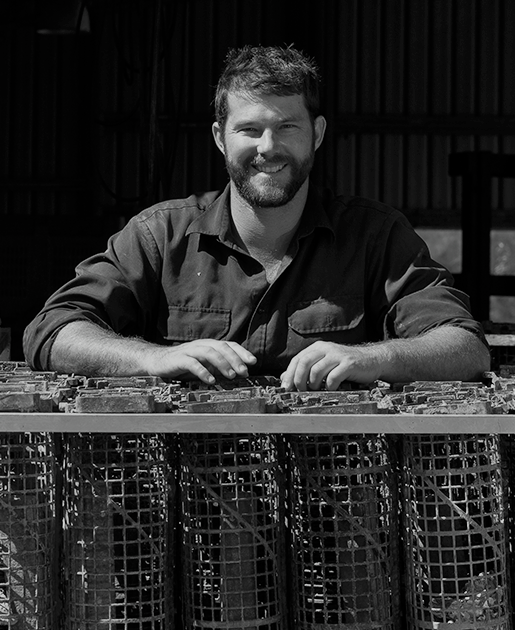Meet Ewan McAsh
When Ewan McAsh couldn't find a digital solution to managing his oyster farm, he created it.
This oyster farmer embarked on a 16-year journey to bring his farm into the digital world.
Oyster farms are traditionally run on memory, a whiteboard, or even an old school database system but farmer Ewan McAsh, 40, believed there was a better way. Living in the smartphone era meant he could do everything from checking emails to paying bills at the touch of a button, so why couldn't he manage the farm remotely?“
I thought someone must have built something but when I went looking for a solution, I couldn’t find it," he says.
"I needed something to help me get control of the farm as we scaled up. The biggest challenge for the oyster industry, and the reason no one had solved it, was it’s not a big market like the agriculture industry where you can download the systems for free. We asked ourselves, how do we create an app that solves the farmer's problems and make their businesses bigger?"
The answer lies in Ewan's backstory. After studying marine biology with an interest in aquaculture at university, he and his father bought an oyster farm on the NSW south coast when he was 24.
"There were about 20 oyster farms on the Clyde River and I thought I’ll buy this one, work twice as hard and make twice as much money," he says.
It didn't work out that way. He discovered the farm and the industry were in decline and the traditional model of selling sacks to the fish markets in Sydney wasn't working. So he started selling direct to restaurants and consumers with his new businesses, Signature Oysters.
"Through the process of shucking oysters we found people were more interested in the provenance and story of the oysters rather than the price or size, so we started giving that information to chefs," he says.
It was a success. At its peak Ewan had 20 farmers packing oysters for restaurants and telling the stories of farmers. The farm was modernised, the oysters were better and commanded a 30% premium, but the management of the farm was getting away from him as he spent more and more time talking to chefs and selling the oysters.
“Essentially, the farm was being run on memory and a whiteboard” he says.
Ewan was also using a PC-based shellfish data management system.
“It was double entry though. You’d write something down on a piece of paper while on the river, then take it back into the shed and type it into the computer.
”Ewan asked its creators if they could put something into the Cloud but they had no plans to develop their system further.
“So, I went looking for a better solution. As I was being drawn away from the farm to market oysters, I was using my smartphone to send emails and thought, ‘Why can’t I use this to manage my farm?’ It was during that search that Ewan met co-founder Phillip Browning who was interested in using Blockchain and digital technology to certify the provenance of food. Together they created SmartOysters.
“Even though it was a solution for my farm, Phil saw he needed to build something that could create a lot more value to farmers by integrating systems and managing data within industries. Phil worked on the farm with me one day a week for about 18 months and gained a solid understanding of farm practice,” Ewan says.
“There are a lot of reasons why standard database systems don’t work. Each farm has a different cultivation method and scheduling priorities depending on its infrastructure and location. By using a geolocation system the app lends itself to having a map-based navigation. It is intuitive and simple enough to capture information right there and then, so you don’t have to remember it later.
“When I first started oyster farming using the complex database system, I thought I would employ someone to just enter data but I soon learnt that you have to be running lean – capture inventory data, record and identify problems straight away.
“The app is agile enough to change the language and scheduling to each individual farm, and capture what farmers are doing rather than having to conform to an inflexible system.
"The data we are capturing is creating more value for the farmer. We’ve also made sure that our approach is ethical. We are not data farming or selling off the data. We’ve created enough value for the farmer that they’re keen to subscribe to our service now. Our vision is to continue creating more value in terms of being able to access finance, certify sustainability, create market differentiation using data and ultimately help them sell their oysters using data to create a smarter business model.
“I was initially just looking to solve a problem for my farm, I was innovating and striving but not making any money. I needed to make more money for oysters, I solved that with Signature Oysters. However, I couldn’t delegate and scale my farm. I solved that with SmartOysters.
”Ewan and Phil started working on the app in 2016 and trialled it at the end of 2017.
"It was the week my daughter Ivy born, I was sitting on the couch feeding my newborn and directing my brother-in-law on the farm using the app on my iPad," he says.
"We went to market in early 2018. It took us 16 years of oyster farming to get to that point. It was worth it."


